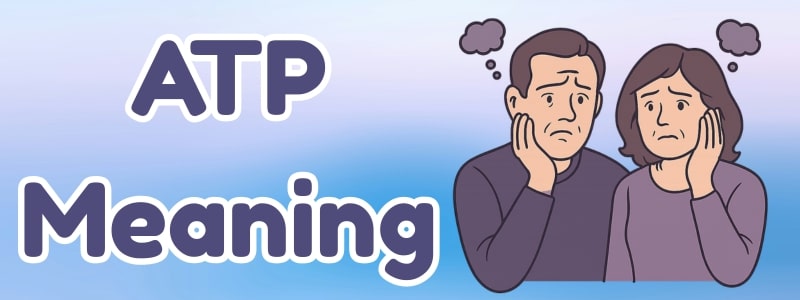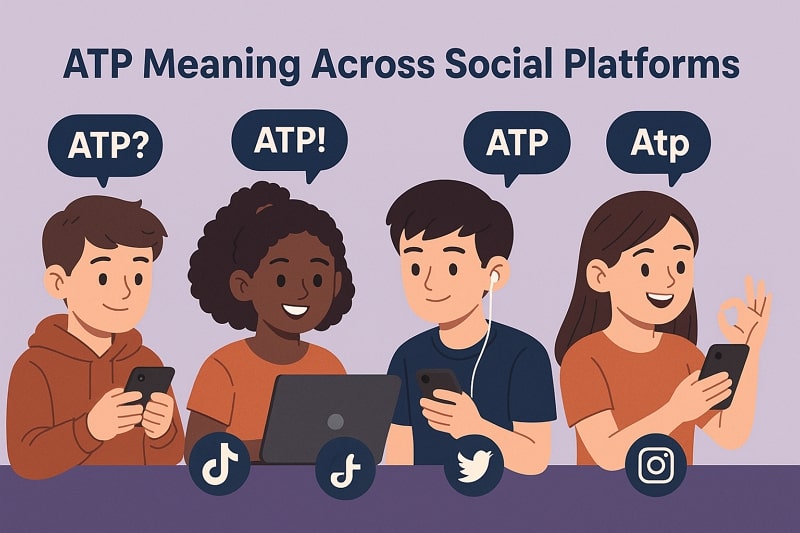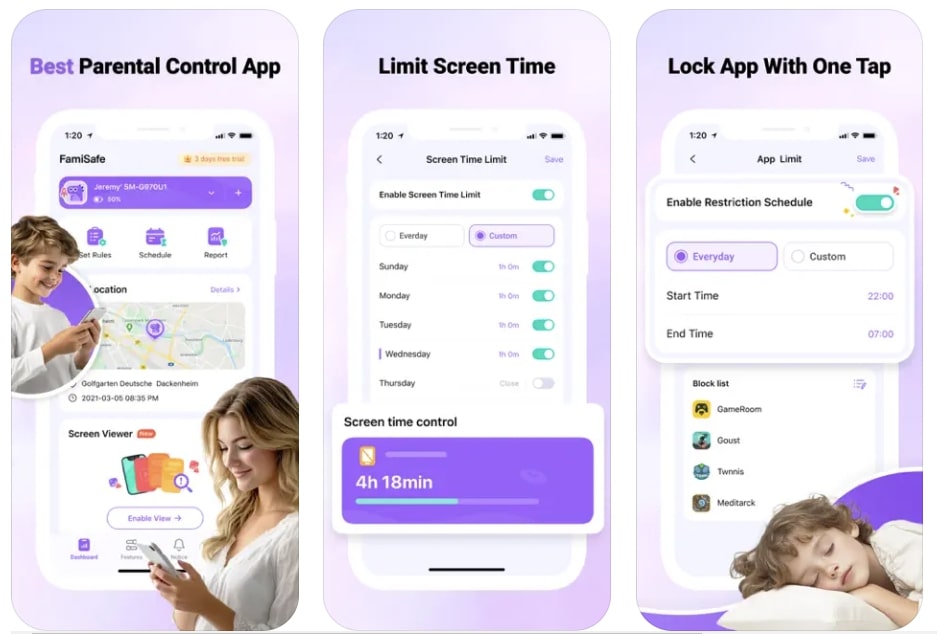Along with the rise of new platforms, the language used to communicate has also evolved a lot. The rise in the use of slang words while texting or chatting has led many parents to worry about what sort of things kids say online. Although these phrases can sound simple, their meanings may not always be so. Some carry meanings that parents should be aware of for safety and peace of mind.
One such term you will usually encounter is ATP, which you may have seen in your child’s chats or captions. Parents might wonder what this term means and if they should worry about it. Hence, this article will explain the ATP meaning and how it is used across social media. Furthermore, we will discuss an advanced tool that can help you monitor what slang your kids use on social media.

Table of Content
Part 1. What Does “ATP” Mean in Text and Online Slang?
Although it can be used in many contexts across platforms, the most common ATP meaning in slang is "At This Point." Kids usually use it to talk about their current mood or decisions in a funky way. As an example, you might see a person saying, "ATP, I'm done trying," which actually means they have reached a decision or emotion at the current moment.

In some cases, ATP meaning text may also mean “Answer the Phone,” and is used when someone wants the other person to pick up their call. You might see a teen saying, “ATP! Please!” when trying to get someone’s attention urgently. While both meanings are harmless, knowing the difference depends on the situation and the message. Furthermore, the ATP meaning slang changes according to social media platforms.
Explore Related Articles:
Part 2. ATP Meaning Across Social Platforms
As said above, ATP meaning can change according to the situation and the platform it is used on. Depending on the age and the user base of the platform, we have explained its different meanings below:

In the same way as we’ve already explained above, ATP usually means “At This Point” when used on Instagram. It’s mostly used in captions or stories to represent a current mood or situation. To explain it simply, it is a way to express frustration or any strong feeling in a short and casual way. Although the term may sound dangerous, it really helps users share their emotions with minimal words.
Like Instagram, the ATP meaning slang is a short form of the phrase “At This Point” and represents one’s current mood in private messages or snaps. You might see your kids sending snaps of their homework with the message, “ATP, I’m ready to quit,” which simply shows their frustration. In fast and casual chats, teens prefer using such short slang to keep the conversation quick and fun.
Unlike the above platforms, ATP meaning slang on Twitter, now known as X, is used to show a live reaction or current opinion. Many users post their thoughts on the platform using this term to add a feeling and time context to the tweet. Likewise, it fits on the platform due to its limitations on long posts and helps users speak casually.
Part 3. Common Teen Slangs Like “ATP” That Parents Should Know
Now that you know what does ATP mean in text and slang, we can move on to discussing other such terms that are widely used by teens. Thus, the following section contains a detailed table with the trending slang words and their meanings:
| Slang Term | Meaning | Definition | Example Sentence | Notes for Parents |
| GYAT | Goddamn | A loud way of saying someone has an attractive body, usually focused on appearance. | “GYAT! Did you see that girl walk past?” | Repeated use may reflect oversexualized content or body-shaming behavior. |
| Rizz | Charisma | Refers to charm or flirting skills, mostly used to describe someone who can impress others easily. | “He’s got so much rizz, everyone listens when he talks.” | Harmless in most cases, but if used alongside adult themes, it may reflect risky online conversations. |
| Finna | Going to/Fixing to | Planning or about to do something. | “I’m finna go to the party later.” | Usually safe, but parents should check the context if used when making plans with unknown people online. |
| WTV | Whatever | Widely used to show boredom, disinterest, or that something isn’t important. | “WTV, it doesn’t matter anymore.” | Repeated use might suggest emotional withdrawal, disinterest, or signs of stress. |
| Cap | Lying | Means a lie or something untrue. It’s used to call someone out if they are not being honest. | “You didn’t win that game. That’s cap.” | Common in debates or joking chats, but becomes a concern if used in bullying or constant arguments. |
| Bet | Okay or deal | Agree with someone or confirm plans. | “Want to meet at 6?” “Bet, see you then.” | Casual affirmation, and it is not concerning |
| No Cap | No lie, being honest | Means truth or honesty. It's used to show the person is being real and serious. | “No cap, that was the best movie I’ve seen.” | Harmless in most cases. |
| Slaps | Awesome, amazing | Refers to music or media that sounds great or feels exciting. | “That new album slaps so hard!” | Harmless slang used to praise media; no safety concern unless tied to violent or explicit content. |
| Bussin | Extremely good, amazing, delicious | Means something tastes really good or is amazing. Usually used to describe food. | “This burger is bussin. I need another one!” | Safe and usually playful, often related to food or music; no immediate concern for parents. |
| Sus | Suspicious | When someone is acting strange or hiding something. | “He left without saying goodbye. That’s kinda sus.” | Can signal joking or actual distrust. |
Part 4. How Parents Can Monitor Teen Slang Use on Social Apps?
Although the ATP meaning text says the slang is not harmful, many other such words can represent that your kids might be using the wrong language with their friends. Due to these concerns, it is recommended that the usage of such words be monitored using advanced tools, like FamiSafe. This useful parental monitoring tool provides comprehensive solutions for controlling kids’ mobile phone usage habits and managing their social media usage.

Its Explicit Content Detection feature is especially useful in managing 14+ social platforms and reporting any harmful pictures and words in your kids’ conversations. Besides, the Screen Viewer feature sends screenshots of the kids’ screens to the parents’ devices after timed intervals.
Once you find them using harmful slang, using the App Rules feature can help you block access to those social platforms remotely. With these features, FamiSafe is the ideal tool to ensure your kids’ online safety. Hence, download it now and use its advanced features to monitor your kids’ slang usage on social media apps.
Conclusion
To conclude, the article explained the ATP meaning and how it helps people express emotions online. While many of these terms are harmless, you can prevent confusion by knowing their meanings better.
Furthermore, small steps like reading messages with care or asking about a word can make a big difference in building trust and safety online. Similarly, FamiSafe helps monitor slang usage through its Explicit Content Detection feature.


